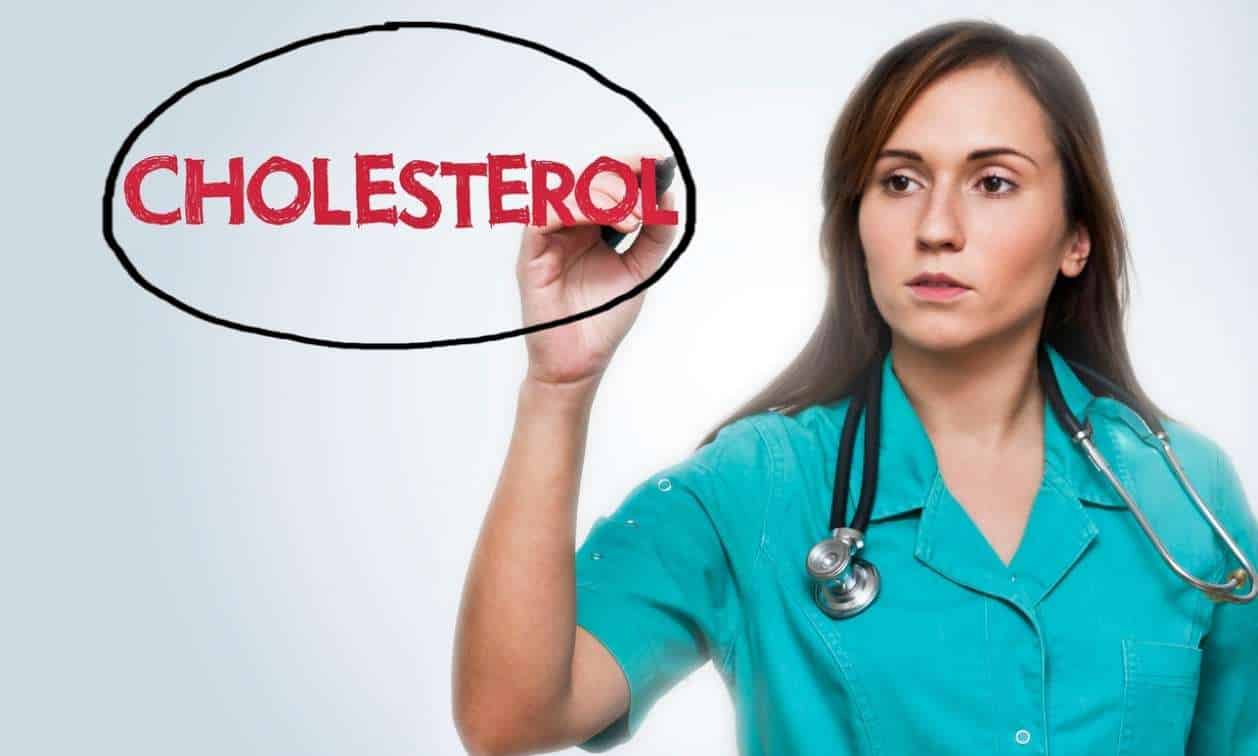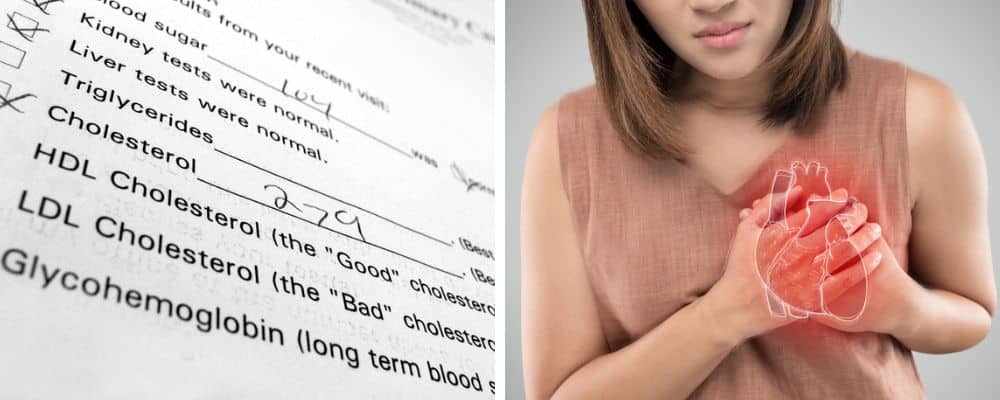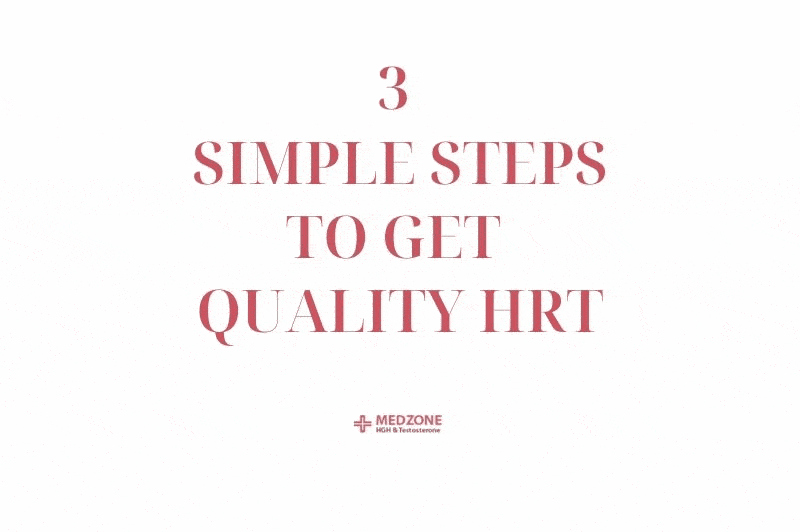
Menopause & High Cholesterol: Prevention & Treatment
Table of Contents
Key Points
- There is a definite link between menopause and high cholesterol in women.
- Declining estrogen levels that occur at menopause changes how a woman’s body burns or stores fat and can increase bad cholesterol levels.
- Changes in diet and lifestyle, prescription medications, and hormone replacement therapy can all help lower cholesterol in menopausal women.
Menopause in women is characterized by a significant drop in estrogen. In addition to the many familiar symptoms of menopause, we know that lack of estrogen causes, it can also raise cholesterol levels.
Is There a Link Between Menopause and High Cholesterol?
Every woman knows that menopause is caused by the loss of estrogen that occurs once she enters her post-childbearing years. That drop in estrogen brings with it a wealth of uncomfortable symptoms, including hot flashes, night sweats, and mood swings.
But because of the role that estrogen also plays in lipid metabolism, the loss of estrogen that occurs just before, during, and after menopause, can cause “bad” cholesterol levels to increase.
Menopausal women are at a much greater risk of heart disease because of the metabolic changes that lowered estrogen levels can create, particularly its impact on cholesterol.
Why Having High Cholesterol is Dangerous for Women’s Health?
High cholesterol increases your chances of developing heart problems and of having a fatal cardiovascular incident such as a stroke or a heart attack. Cardiovascular disease is the number one cause of death in menopausal and post-menopausal women. According to CDC statistics, after entering the menopausal years, more women die from heart disease and stroke than from the next five causes of death combined, including breast cancer.
Doctors assess your risk of cardiovascular disease by looking at what is known as your “lipid profile.”
Your lipid profile is determined by blood tests that look at:
- Your total cholesterol
- Your level of high-density lipoprotein (HDL), also known as “good cholesterol”
- Your low-density lipoprotein (LDL), also known as “bad cholesterol”
- Your triglycerides
The loss of estrogen that occurs during the menopausal years can negatively impact a woman's lipid profile. In particular, estrogen loss can raise your bad cholesterol and lower your good.
During a woman’s child-bearing years, while she is menstruating regularly, it turns out that estrogen provides various protections for the heart. Primarily, estrogen works along with liver enzymes to regulate lipid metabolism – or how your body stores or burns fat – and helps you to maintain a healthy lipid profile. Once estrogen levels drop after the last normal menstrual period, bringing on menopause, a woman loses those protections.
Multiple studies have found that menopausal and post-menopausal women have greater total cholesterol as well as higher LDL and triglyceride numbers than younger women who have not experienced menopause yet. Higher numbers like that significantly increase the risk of sudden death from a heart attack or stroke.
How Often Should Women Have Cholesterol Screenings?
A cholesterol test is instrumental in determining your cholesterol level and, therefore, your risk of heart attack and stroke. Most doctors and medical organizations recommend cholesterol screenings every 4 to 6 years for healthy adults ages 20 to 39 and, more often, for people ages 40 to 75.
Menopausal women should have their cholesterol levels checked more often — perhaps every 1 to 2 years. Your doctor will recommend how often you should be screened. If you have been found to have high cholesterol, screenings may be recommended every three to six months to determine the effectiveness of any treatments that may have been prescribed.
Tips to Prevent High Cholesterol
- There are several ways that menopausal women can help lower their risk of developing high cholesterol.
- Eat a heart-healthy diet
- Get more exercise
- Get adequate sleep
- Reduce the consumption of alcohol
- Quit smoking
How to Treat High Cholesterol Due to Menopause?
Menopausal-related high cholesterol in women is treated in a number of ways. Your doctor may suggest lifestyle and dietary changes that can help bring your cholesterol level down.
Prescription medications such as statins may be recommended. Depending on your other menopausal symptoms, you may be a candidate for growth hormone replacement therapy. HGH therapy not only can help mitigate the other common symptoms of menopause but also may help lower your cholesterol level.
Growth Hormone Replacement Therapy
For decades, growth hormone replacement therapy has been the standard of care for treating the many debilitating symptoms of menopause in women. In addition to helping to reverse or eliminate menopausal issues such as night sweats, hot flashes, and vaginal dryness, HGH can also lower levels of “bad” cholesterol in menopausal and post-menopausal women.
Several studies have shown that HGH therapy lowers LDL cholesterol and raises HDL. Hormone replacement therapy has also been shown to lower triglycerides. The improved overall lipid profile of women receiving HGH has been associated with at least a 30% decline in cardiovascular disease risk.
Diet
Diet can play a very important role in reducing cholesterol. Post-menopausal women should eat a heart-healthy diet rich in fiber. Add foods such as”
- Legumes, edamame, chickpeas, peas, and lentils
- Whole grains
- Fresh fruits and vegetables
- Oily fish and other foods rich in Omega-3s
- Soy products for their estrogen-mimicking properties
Avoid high fat, high sugar foods, junk foods, and processed foods.
Statins
Statins are cholesterol-lowering prescription drugs. Statins work to lower cholesterol in two ways; they decrease your body’s ability to produce LDL (bad) cholesterol, and they also improve your liver’s ability to produce the enzymes that help remove LDL cholesterol from the blood.
Conclusion
There is a definitely higher risk of menopausal women developing high cholesterol, putting them at greater risk of heart disease. However, that risk can be lowered by dietary and lifestyle changes, the use of prescription drugs such as statins, and hormone replacement therapy.


